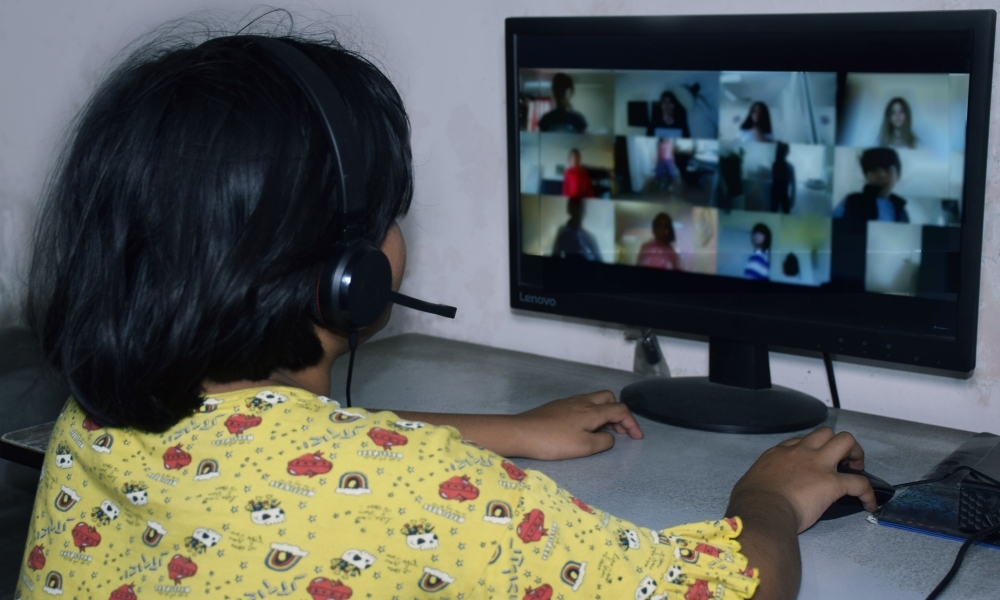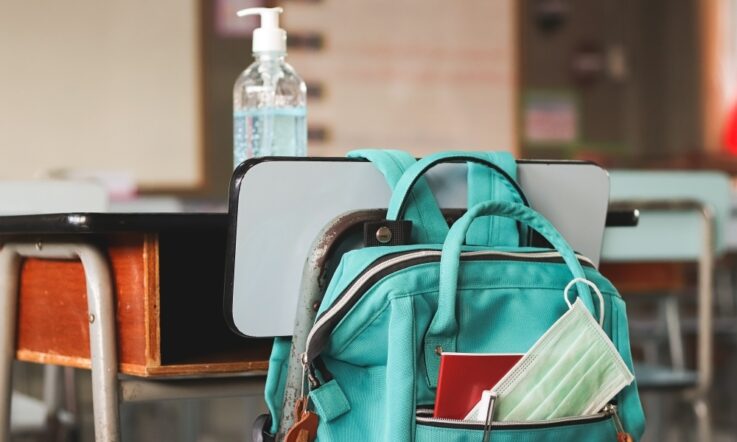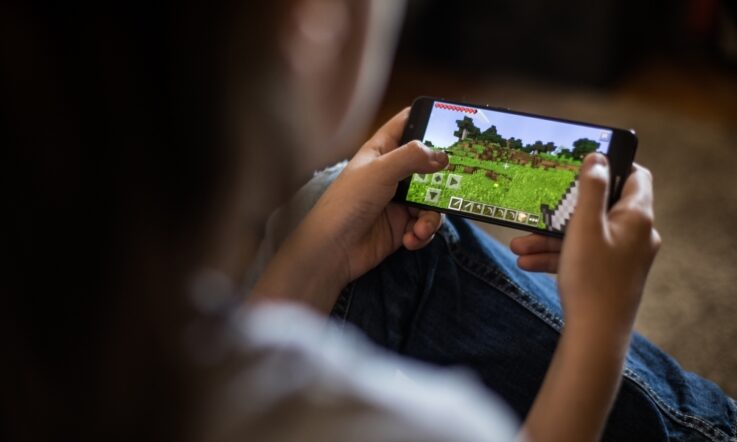In these pandemic times, where classes here in New Delhi are still online or in hybrid mode in a few schools, the task of teaching has become trickier.
The typical model of teaching ‘offline’ was switched over to ‘online’. Educators needed to learn new skill sets and operate various online tools. During the initial lockdown, teachers scurried to attend webinars to learn and upgrade.
Remote lessons have been hit by technology snags and internet disruptions. Students have missed the hugs and loving pats, while some have skipped online classes and behaviour has gone awry. Teachers have shown an untiring spirit in grappling with all these challenges and more.
As the months have passed, they have become adept at delivering their lessons using a plethora of platforms – from Google Meet to Zoom, to Webex and Skype … the list is endless.
More than just academics
But the role of teaching has been augmented and the move to online learning has brought with it the need to shift focus. Curriculum content is being delivered, but students need much more than content, books and assessments.
Many of the students’ families will have gone through the COVID crisis – the disease itself, the loss of a near one or an acquaintance. Even if all is well, the fact that students have been learning from home and stuck indoors for months has taken its toll on their mental and physical health.
The pandemic is still on and the battle for us, as teachers and school leaders, continues – to keep our students mentally happy and physically secure. In the Junior branch of DPS International (DPSI), we are thinking beyond delivering the curriculum.
In Grade 4 my students wrote poems about the pandemic period, talking about their routine and responsibilities during the lockdown. They felt free to pour their hearts out, revealing the emotions they were going through.
At the end of 2021, they penned touching letters to Santa, asking him to make their wishes come true. The wishes included the sudden disappearing of the pandemic one fine morning, keeping their families safe and making their loved ones recover from COVID.
They also had fun presenting their skills and talents during the Mega Talent Show online. Their faces shone and eyes glittered with joy as they proudly presented their strengths. Many of the children had learnt new hobbies and had perfected them during this period.
Having an outlet for their emotions made them feel lighter and the support from their teachers made them stronger. Students need support and a person to trust. They still have their fears, which may have grown over the months and cannot be dismissed. They may have memories of days with a darker shade; their behaviour may change.
In the Junior branch of DPSI, teachers are seeking to strengthen relationships with their students. We give them ample opportunities to speak about their joys and concerns. Children may not want to share their feelings openly in an online class, so one-on-one time with a teacher can help. Slowly and steadily bonds will be fostered.
Some students are still coping with COVID having struck family members, others are seen wearing masks in online classes too. A teacher’s assurance and empathy can have a positive impact on their wellbeing.
Here are some of the other things we’ve been focusing on at our school during the pandemic:
- Teachers have been speaking to students about indoor hobbies they could try, and avoiding too much screen time during the period of online learning;
- On a similar topic, they’ve been careful to avoid giving too many online projects – designing learning activities that allow students to step away from their screens;
- To enhance student engagement and concentration, activities and educational games for online classes have been designed be fun and impart learning at the same time;
- Children and teachers switched roles – they took charge of the class to teach their peer group, researching and presenting on a topic;
- For our pre-primary and primary classes, talk shows linked to food, toys, clothes, family members and so on (with children presenting to their peer group and adults ─ teachers and parents) have done wonders, increasing student engagement and confidence.
Returning to the classroom
In some areas schools may have re-opened, and the mission of a teacher becomes harder. They need to watch for any change in behaviour from students who may not be able to tell us that they are anxious or stressed, especially in the pre-primary and primary age group.
The change could be small – an action, an expression. It could be a child suddenly starting to talk a lot, or going silent, not completing work or participating in activities in class, or maybe they’re not smiling as often as they used to. Strengthening relationships with our students and making connections will help them.
The teaching profession calls for us to reach out to every child and try and make the classroom as joyful as possible. Rules of the school and the classroom have been reinvented and revamped during this pandemic. Change is the essence of life and we must keep adapting to the ‘new normal’.
In this article, Geeta Gujral explains how she has provided opportunities for students to share their experiences and emotions in relation to the pandemic. How could you do this in your own class?
What did students enjoy about learning from home or learning online? What did they find difficult? How can their feedback inform your future planning?



